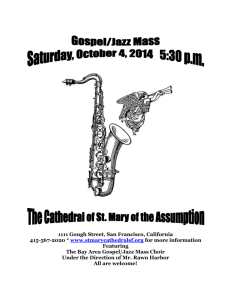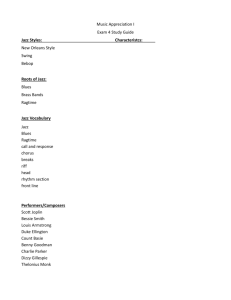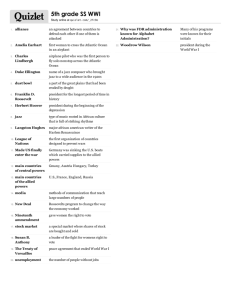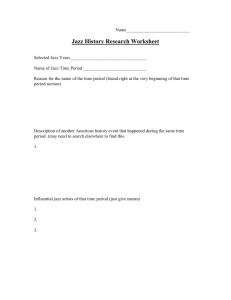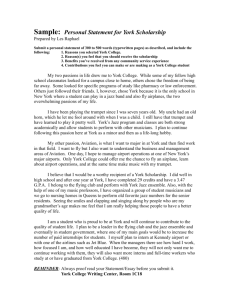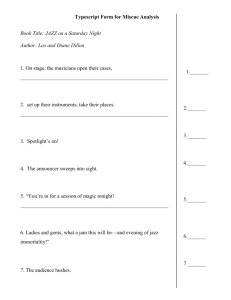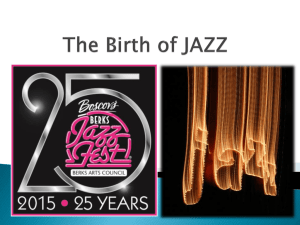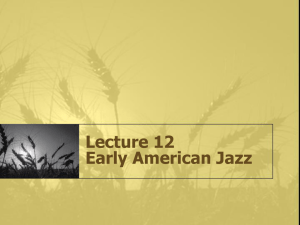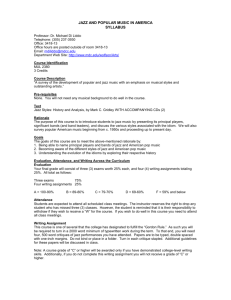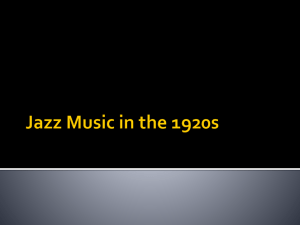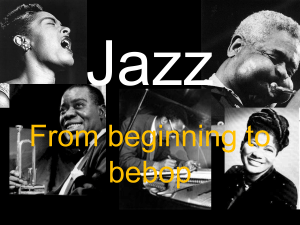Slavery - rickson
advertisement
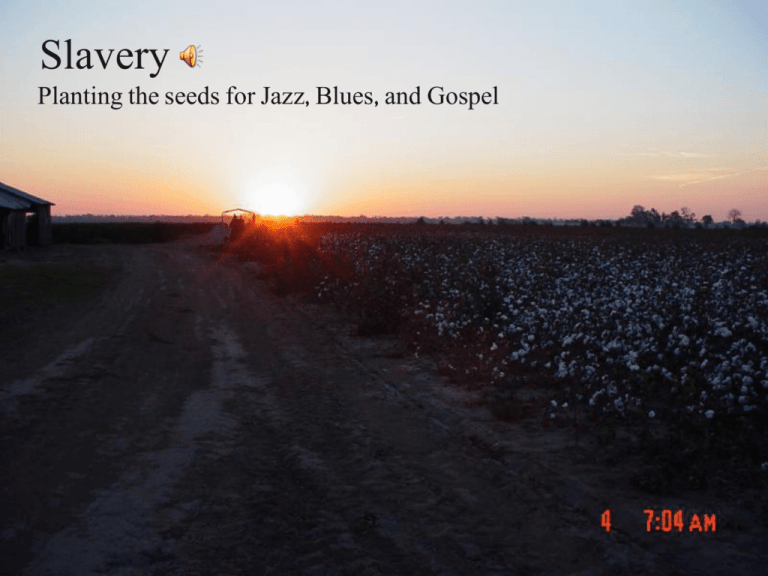
SLAVERY Slavery Planting the seeds for Jazz, Blues, and Gospel Colonialism and the Slave Trade Darkest Period in Western History Ladysmith Black Mambazo Cotton Slaves brought to the American South to pick cotton and tobacco By 1865, 30 million slaves worked in the region The United States became the richest nation in the On the backs of their world. slaves Further Reading… How did Slavery end in the U.S.? Abraham Lincoln Signs “Emancipation Proclamation” Civil War breaks out. North vs. South War would last from 1861 to 1865 More Americans killed in this war than ALL other wars the US has fought in since, combined! The North eventually won. Slaves were set free. How did battlefield communications work in the 1860’s? Music! Military Communication in the 1800’s was through music “eg trumpet call to instruct “CHARGE” -musicians often children too small to fight but were still in the line of fire -many musicians killed on battle field to destroy communication means for opponent -after battles, marching band instruments litter the field (trumpets, trombones, clarinets They are picked up, cleaned up, appear in pawn shops and are the only instruments recently freed slaves could afford -they become the early instruments of jazz The seeds are planted….. -West African rhythms create rhythmic feel for jazz -West African focus on improvisation creates the improv elements of jazz -harmonic influence learned by black musicians through the hymns they were taught in churches on plantations Jazz takes a few decades to develop Scott Joplin Around 1890 he settled in St. Louis, where the unique combination of European classical music styles and African-American harmony and rhythm led to the creation of a new genre of music. The syncopated rhythms were referred to as “ragged time,” which was eventually shortened to the word most easily associated with Joplin – Ragtime. Joplin was greatest ragtime innovator and you will recognize his greatest hit. “The Entertainer” This is the predecessor to jazz Jazz finds a home….New Orleans New Orleans is a port town. Ironically, where many Africans first set foot in North America Location makes it an important sea port and is the entrance to the heart of the country up the Mississippi Port towns are also known as great places to…. PARTY!!! Mardi Gras!!! And every good party needs…. MUSIC!!! Musicians from all over the south can find work playing in the country’s best party town -other musical influences share in the multicultural atmosphere of New Orleans. Being a port town, there were people in and out from all over the world. (French, Spanish, Portuguese) We’ve been listening to King Oliver Louis Armstrong Trumpet player in Oliver’s band Incredible improviser Became so big, he went out on his own Moved jazz out of New Orleans, up the river to Chicago And to the rest of the world. Louis Armstrong became the first black celebrity.
